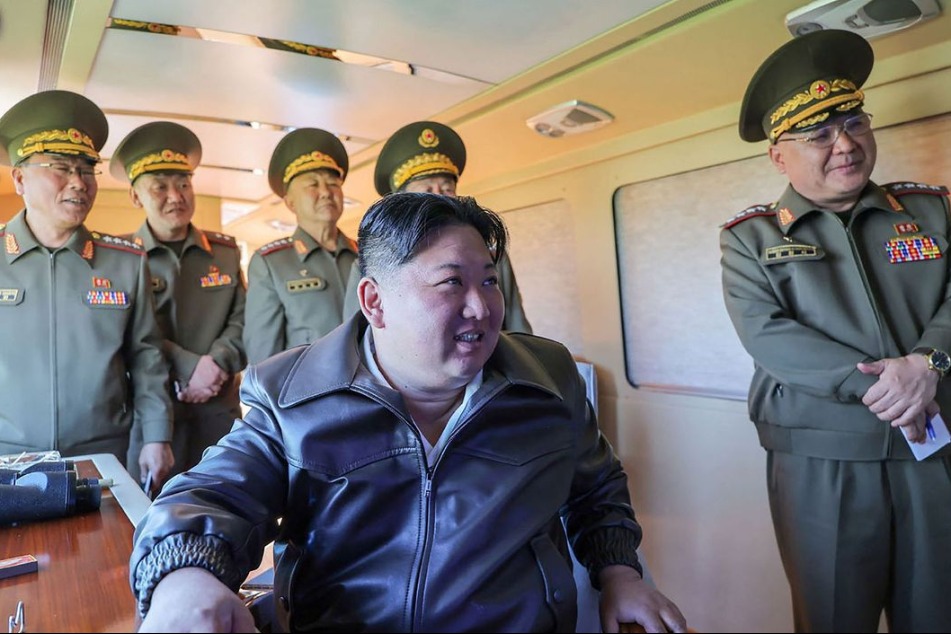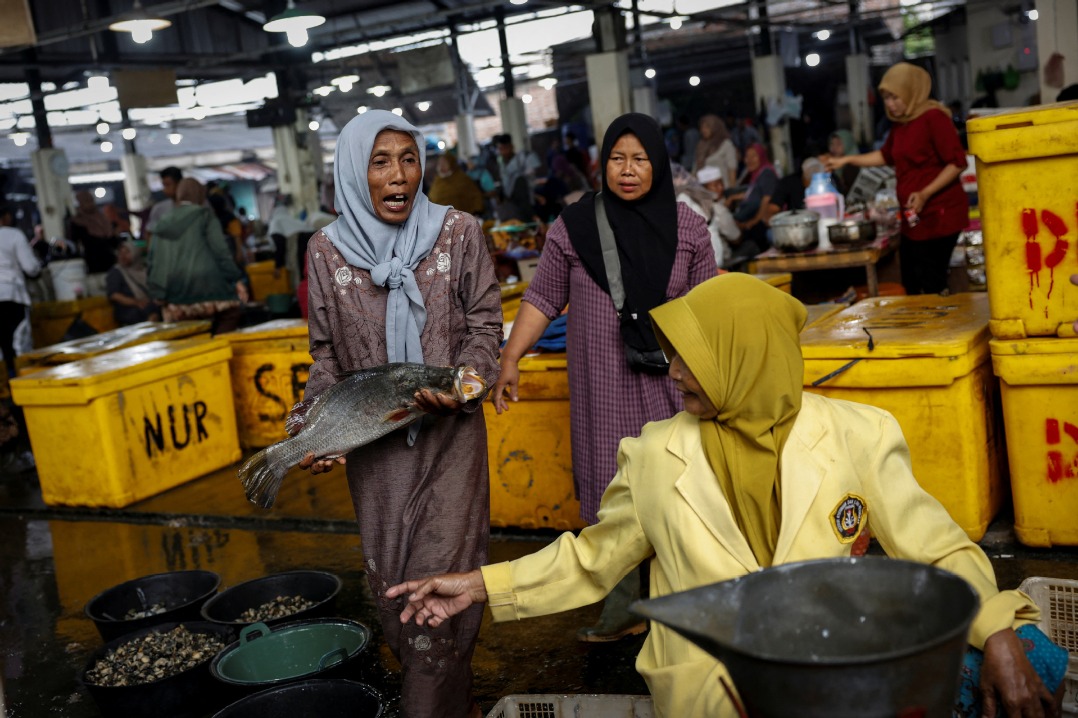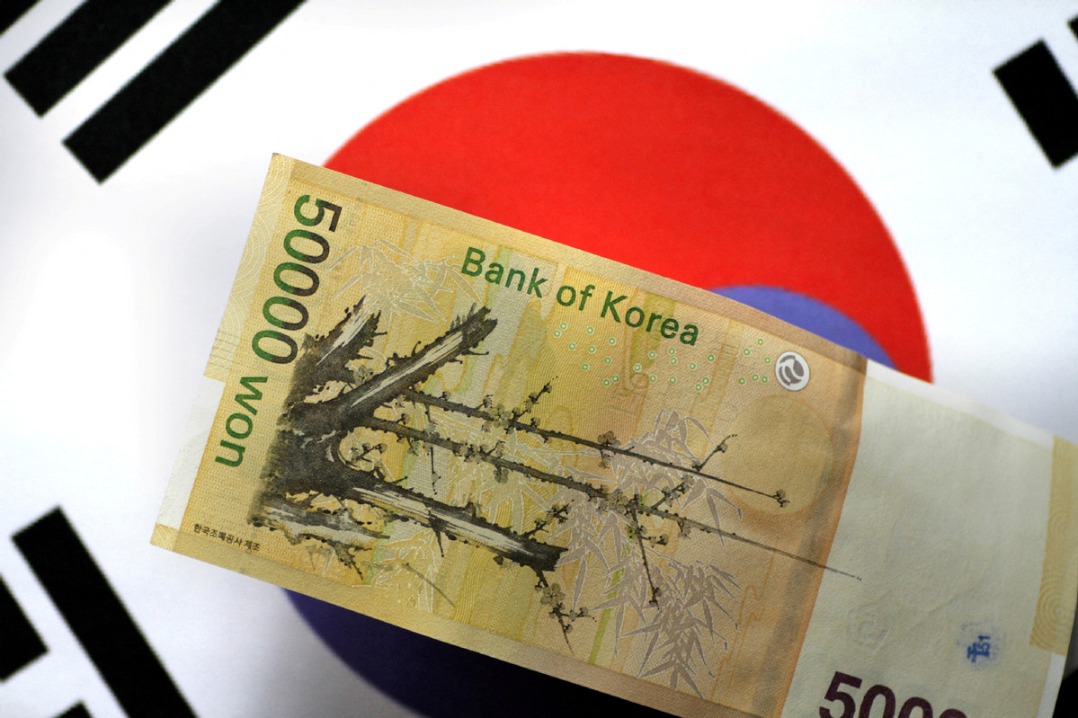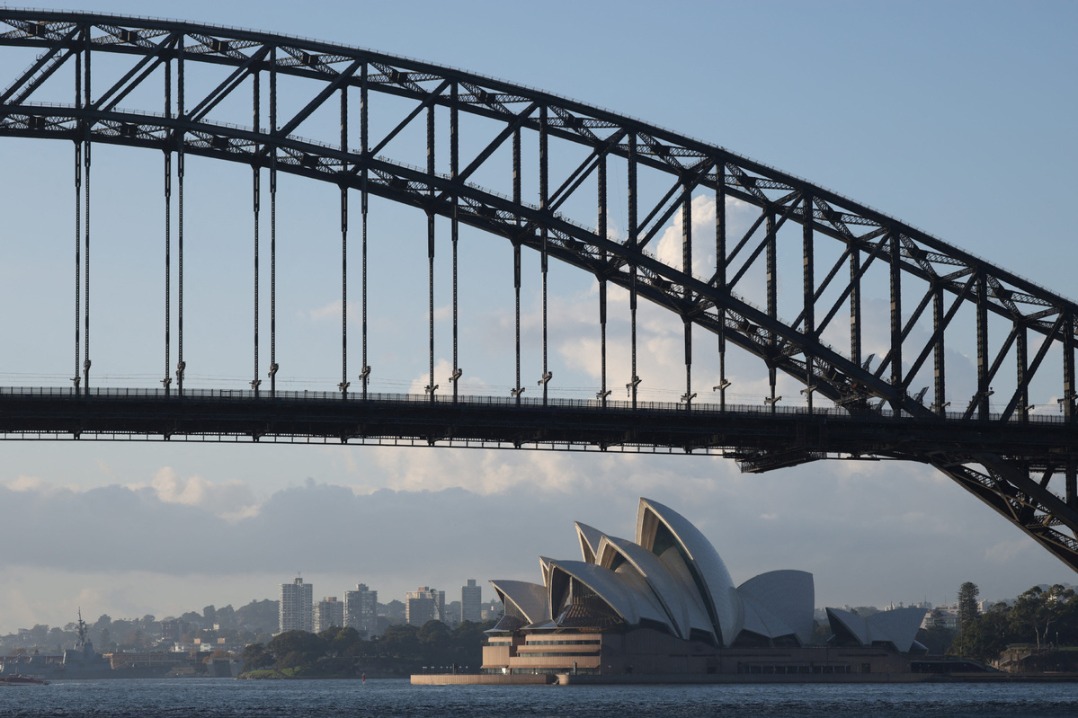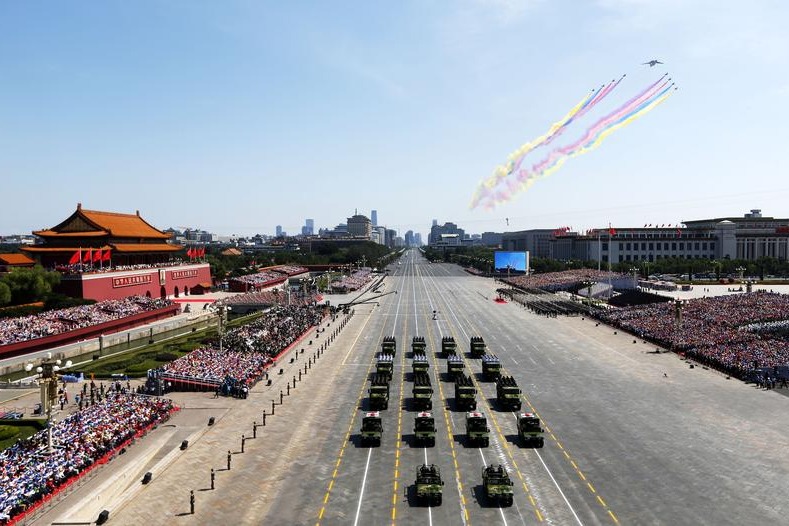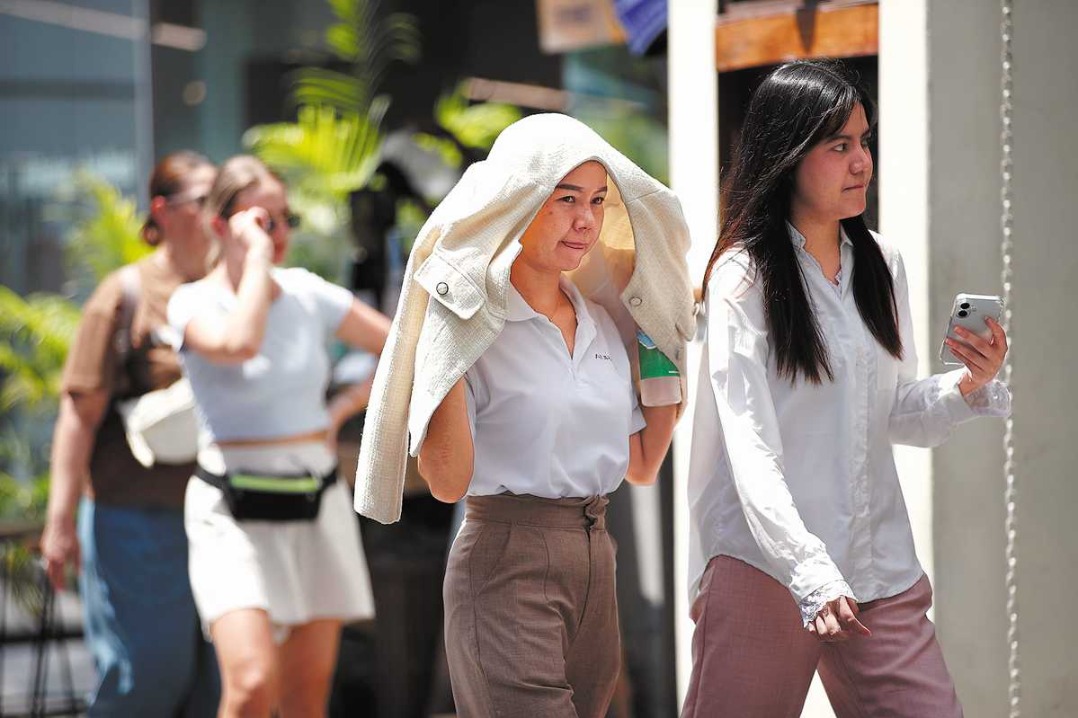Tasmania given timely trade boost
Relaunch of state's Australia-China Business Council branch welcomed as boosting 40-year relationship

The Tasmanian branch of the Australia China Business Council (ACBC) is to get a new lease of life after lying dormant since the COVID-19 crisis.
The announcement was made on April 14 at a business roundtable in Launceston, in the north of Australia's smallest state.
Tasmanian Premier Jeremy Rockliff joined ACBC National CEO Tom Parker and local business leaders to discuss the opportunities and challenges in the Australia-China economic relationship and announce that David Morris will head up the council's Tasmanian branch.
Morris, a Tasmanian, had been based in Beijing as the trade commissioner for the Pacific Islands Forum Secretariat, representing Pacific Island states to promote trade, investment, and tourism from China.
Morris told China Daily that he was looking forward to supporting Tasmanian businesses engaged in trade, investment, and tourism cooperation with China.
Based in Hobart, the island state's capital, Morris pointed to Tasmania's long-standing relationship with China going back more than 40 years. Tasmania signed a Sister Relationship Agreement with Fujian in March 1981 — Fujian's first international sister state agreement.
The past four decades have witnessed high-level exchanges, flourishing cultural exchanges, economic and trade cooperation, and a closer bond of friendship between the people of Tasmania and Fujian.
That close relationship was evident in 2014, when President Xi Jinping and his wife visited Tasmania.
During the visit, Xi met with the family of the late state premier Jim Bacon, whom Xi met in 2001 when governor of Fujian.
"Bacon invited me to visit Tasmania then, and I agreed. I came here today to fulfill my commitment to him," Xi said, praising Bacon as an old friend of the Chinese people for his contribution to the relations between China and both Tasmania and wider Australia.
Xi was the governor of Fujian from 1999 to 2002. He became acting governor in 1999 and governor the following year.
Morris, who recently completed writing a book on the rise of China, said he is looking forward to his new challenge.
"The premier is a great advocate for Tasmanian trade," he said, noting that Rockliff led a successful delegation to Fujian and Shanghai last November.
"We at the ACBC can help add to that relationship," Morris said.
"Trade is very important to the state, especially in the seafood, mining, and dairy sectors.
"We are now seeing more Chinese tourists visiting Tasmania, which, I believe, has something very special to offer."
Morris said Xi's 2014 visit to Tasmania highlighted the state's strong relationship with China.
"This was something Premier Rockliff pointed out during the roundtable recently in Launceston," Morris said.
China is Tasmania's largest export market, accounting for A$1.41 billion ($901.9 million), or 31.3 percent of the state's total overseas exports, in the year to December 2024.
An ACBC-commissioned report by the BankWest Curtin Economics Centre highlighted the crucial role of Tasmania-China trade, pointing out that in 2022-23 it created 5,500 trade-related jobs and contributed A$880 to every Tasmanian household.
The report said Tasmania's seafood exports to China have grown on average close to 60 percent per year since 2014-15, demonstrating the increasing demand for premium Tasmanian products.
ACBC National President David Olsson?emphasized the strategic importance of the branch reopening.
"Tasmania has enormous opportunities in the China market, and ACBC is committed to ensuring local businesses have the knowledge, networks, and advocacy needed to succeed," he said.
"With trade stabilizing and key export sectors rebounding, now is the right time to re-establish ACBC's presence and provide the industry with the support it deserves."
Established in 1973, the ACBC represents 500 Australian companies with business interests in and with China.
When Rockliff led the Tasmanian business delegation to China in November, he said the visit delivered important relationship-building outcomes for Tasmanian businesses while strengthening the state's China trade ties.
The premier said the mission underscored the importance of a strong trade and investment link with China.
"There is a wealth of opportunities for Tasmanian businesses in this market, and it's important we continue looking at ways to further strengthen these ties," Rockcliff said.
"It's clear Tasmania has what the world wants, and it's fantastic that, through trade and investment opportunities, we're able to provide targeted support for Tasmanian businesses to break into new markets."
International trade is critical to Tasmania's economy, with overseas exports adding close to A$6 billion per year to the state economy and supporting thousands of jobs.
















